Menopause Self-Care builds on our current self-care; our menopause symptom management; our healthy lifestyle, diet, weight management, regular physical activity and…
Self-Care
What is self-care?
Depending on the Source the definition of self-care may vary. In Self-Care for Health and Wellbeing the World Health Organization’s (WHO) definition is:
Self-Care Actions and Interventions
What are the two parts to self-care?
In Self-Care Month 2024: What Is Self-Care? the WHO elaborate on:
Self-care actions and self-care interventions
Self-care actions
Self-care actions are habits, practices and lifestyle choices – things that we can do to help look after ourselves and lead a healthier life. They include but are not limited to:
- Taking regular physical activity…
- Eating a healthier diet…
- Looking after our mental health…
- Quitting or cutting down on alcohol and tobacco”.
Self-care interventions
Self-care interventions are the evidence-based tools that support self-care. They include quality medicines, devices, diagnostic, and digital tools. Now is an exciting time with more and more tools being developed”.
Menopause Self-Care
How can self-care apply to menopause?
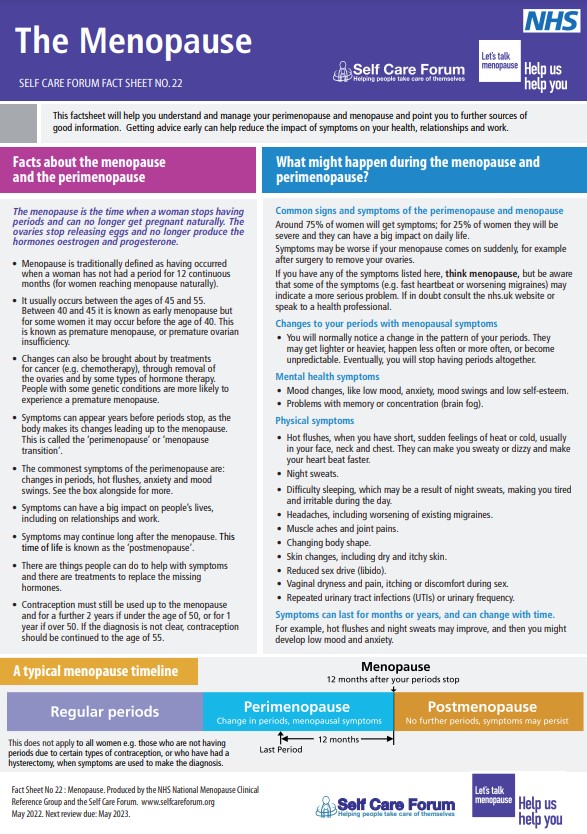 In Menopause Fact Sheet: Managing Your Menopause – General Tips To Help With Menopause Symptoms the Self Care Forum in collaboration with the NHS National Menopause Clinical Reference Group, elaborate on:
In Menopause Fact Sheet: Managing Your Menopause – General Tips To Help With Menopause Symptoms the Self Care Forum in collaboration with the NHS National Menopause Clinical Reference Group, elaborate on:
In their Menopause Wellness Hub the (British) Women’s Health Concern explain:
Hormone Replacement Therapy (HRT), Cognitive Behavioural Therapy (CBT) and other complementary and alternative treatments can all be very helpful, but the transition to menopause is a good time to review your lifestyle. Not only can this help manage menopausal symptoms in the short term, it can lay the foundations for good health through perimenopause, menopause, and the years to come”.

Menopause Depression and Self-Care
How can self-care apply to menopause depression?
On page one in Menopause and Depression: Recognizing Depressive Symptoms and Depression the North American Menopause Society elaborate on:
Health Care Provider
 What if I would like help with menopause self-care?
What if I would like help with menopause self-care?
If you would like help with menopause self-care, it may be in your best interest to choose to talk to your health care provider about this.
In Menopause Fact Sheet: Managing Your Menopause – When To Seek Medical Help the Self Care Forum in collaboration with the NHS National Menopause Clinical Reference Group, explain:
- You want to know more about treatment
- You want to discuss contraception
- You are under 45
- You are already on hormonal treatment or have had a hysterectomy
- Your periods have stopped unexpectedly or have become a problem
- Any of your symptoms have become a problem
See a GP at your practice if:
- It is more than a year after your last period, you are not on HRT and you experience vaginal bleeding”.
Who is a GP?
Dots and/or DotC (Depending on the Country) a GP may be a registered general practitioner, a medical practitioner, a medical doctor or a doctor.
What is the NHS?
NHS can be an abbreviation for the (United Kingdom) National Health Service.
What is HRT?
HRT can be an abbreviation for the Hormone Replacement Therapy.
Health Topics A-Z
Where may I find Health Topics A-Z related to Menopause Self-Care?
In Health Topics A-Z you may find:
Links
Where may I find Links related to Menopause Self-Care?
Your Country may have Links similar to:
Links
This Links List to third party websites is neither comprehensive nor exhaustive. Inclusion on this Links List does not imply endorsement or recommendation. Non-inclusion on this Links List does not imply non-endorsement or non-recommendation. Third party websites are not under the control of Meno Martha International Menopause Directory. Third party websites may contain explicit medical images and/or sexual references. Please read Meno Martha International Menopause Directory’s Links Policy before proceeding to a Link. Please contact Webmaster if you experience a problem with a Link.New or Updated
- How Do I Know If I Have A Mental Health Problem? [May 2024] [Video]
- How To Manage Menopausal Insomnia [04 July 2024]
- Isfglobal.org [International Self-Care Foundation]
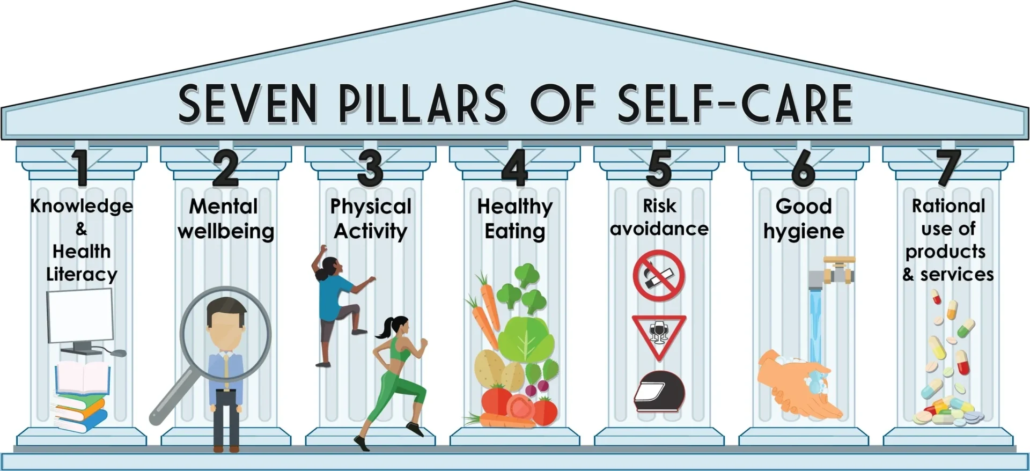
- Menopause Depression: Under Recognised and Poorly Treated [18 May 2024]
- Self-Care Month 2024 [24 June – 24 July 2024]
- Surprising Menopause Symptoms Revisited | Dr Louise Newson [25 June 2024]
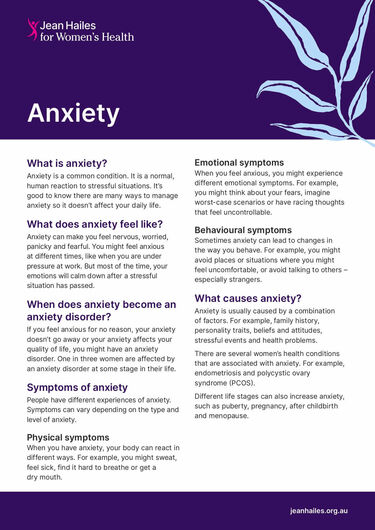 Anxiety
Anxiety- Askearlymenopause.org [Ask EM] [+ Video: What Is Early Menopause?]
- BMS TV: Menopause
- Caring for Your Mental Health: How Can I Take Care of My Mental Health
- Feeling Lonely
- Find A Menopause Practitioner [United States and Other]
- Find An AMS Doctor [Australasian Menopause Society i.e. Australia and New Zealand]
- Find Your Nearest BMS Menopause Specialist [British Menopause Society]
- Hormone Therapy: Four Things A Mayo Clinic Women’s Health Specialist Wants You To Know [+ Video Courtesy: Mayo Clinic News Network. Name Super/CG: Taryn Smith, M.D./Internal Medicine/Mayo Clinic]
- How Do I Know If I Have A Mental Health Problem? [Video]
- How To Manage Menopausal Insomnia [Video]
- Isfglobal.org [International Self-Care Foundation]

- Later Years (Around 50 Years and Over): Menopause and Post Menopause Health – Menopause [+ Video: Menopause]
- Mayo Clinic Minute: Perimenopause and Menopause [+ Video Courtesy: Mayo Clinic News Network]
- Mayo Clinic Q and A: Perimenopause Transitions and Concerns
- Menopause
- Menopause
- Menopause
- Menopause
- Menopause
- Menopause Depression: Under Recognized and Poorly Treated
- Menopause Fact Sheet: The Menopause
- Menopause Map: Downloadable Resources – My Personal Path Print Tools – Questions for Your Health Care Provider

- Menopause Map: Downloadable Resources – My Personal Path Print Tools: Symptom Tracker
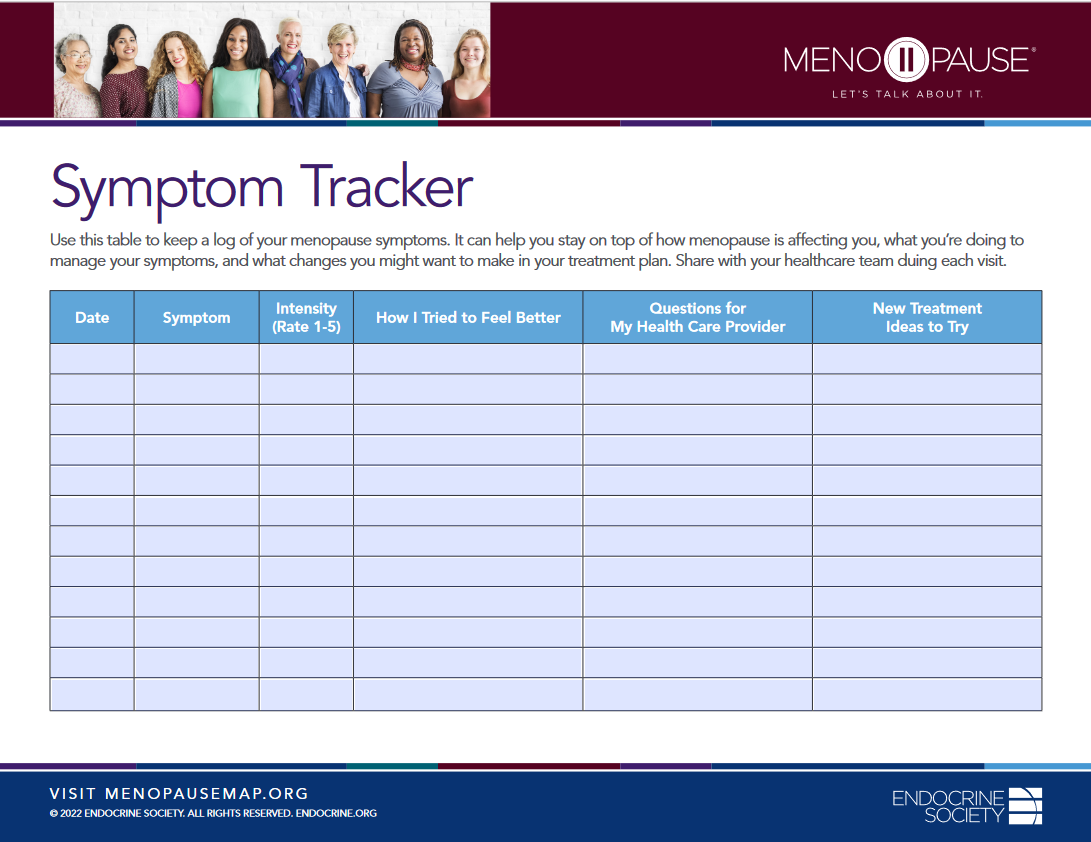
- Menopause Patient Information [Videos] 5. Lifestyle Advice In Menopause & Perimenopause
- Menopause Preparedness Toolkit Video Series: Lifestyle Tips for Menopause
- Menopause Preparedness Toolkit: A Woman’s Empowerment Guide
- Menopause and HRT: Fact and Fiction
- Menopause and Mental Health
- Menopause: Things You Can Do
- Menopause: Understanding the Changes and Finding Relief | Dr Susan Davis | The Proof Podcast EP 256
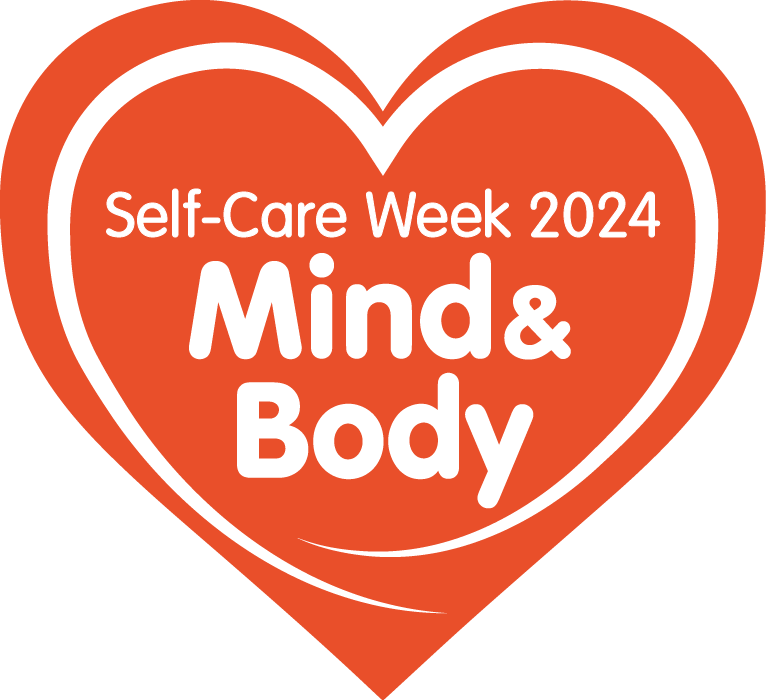 Mood and the Menopause
Mood and the Menopause- Mymenoplan.org [My Menoplan, United States]
- National Self-Care Week 18 – 24 November 2024 [United Kingdom]
- Navigating Menopause: Honest Answers To All Your Questions [+ Video: What To Expect in Menopause]
- Perimenopause and Menopause Checklist: Translated Checklists
- Perimenopause and Menopause Symptom Checklist

- Self-Care Month 2024
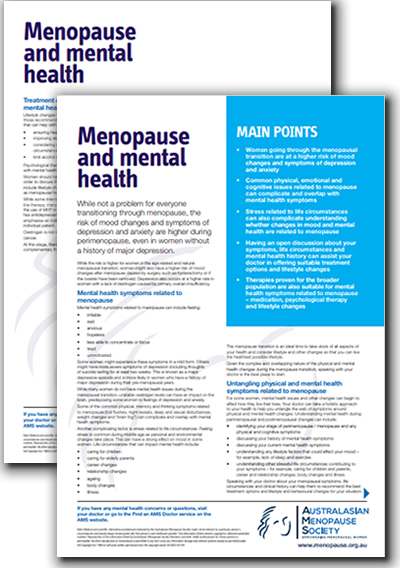 Self-Care for Health and Well-Being
Self-Care for Health and Well-Being- Self-Help Tool: Menopause and Mental Wellbeing
- Selfcareforum.org [Self Care Forum, United Kingdom]
- Surprising Menopause Symptoms Revisited | Dr Louise Newson
- Therapy Could Be Effective Treatment for Non-Physical Symptoms of Menopause
- Tips To Help Manage Menopause Symptoms
- Video Resource: Menopause and Healthy Living – How To Stay Healthy After Menopause
- Video Resource: Menopause and Healthy Living – What Is Menopause? [Multiple Languages]
- Video Series-2024: Preparing for Your Menopause Healthcare Visit
- Videos & Podcasts: Videos – Interviews: Metabolic Syndrome in Midlife Women
- Videos and Podcasts: Videos – Interviews: A Simple Approach To Menopause: The Menopause Quick Six (www.MQ6.ca)
- What Is Menopause? [+ Video]


